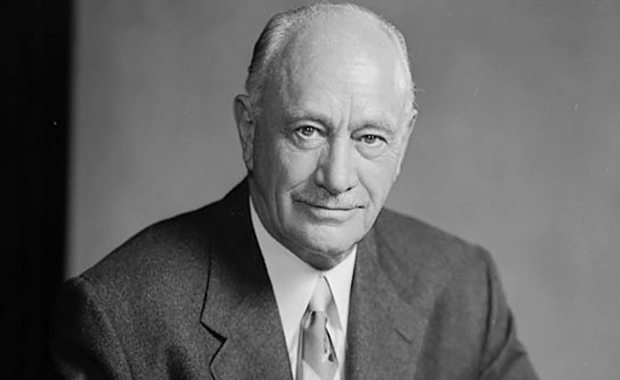Success Advice
10 Rules for Success From the Founder of Hilton Hotels

Conrad Hilton is the founder of the international chain of Hilton Family Hotels, a company that now owns over 500 hotel properties around the world. But it didn’t start that way for Conrad. His way to the top was not that smooth.
He started in the beginning of the 20th century with no money, through the Great Depression, and lost everything that he ever built. After that, he created a multi-billion dollar company.
Conrad Hilton’s 10 rules of success from his biography Be My Guest. The book was published in 1957 and is still relevant today. Here’s a video version as well:
1. Find Your Own Particular Talent
Conrad Hilton was a big believer in the fact that everyone is good at one specific thing and needs to nurture that thing. Take time to explore what you love or think you’d love. You never know where you may end up.
Conrad’s specific talent was his ability to manage hotels down to the dollar, and he showed that by succeeding during the Great Depression.
2. Be Big
Conrad Hilton believed that expanding as far as possible and making yourself appear as large as possible during the process would make you and your business as set up for success as it could possibly be. And what’s a better way to do that than by owning as many hotels as possible?
“To achieve big things you have to have big dreams.” – Conrad Hilton
3. Be Honest
Conrad believed in honesty in all things. The truth eventually always come out, so lying will not help you build an empire! If Conrad used lying to get through life, he might have stolen the money that his friends loaned him when the Depression hit, instead he used it to purchase his first property in Cisco, Texas.
4. Live With Enthusiasm
Conrad Hilton believed that you should live your life laughing, take a hold of the day, and be enthusiastic at all times. This was exactly what he did during his lifetime, becoming one of the greatest managers that ever lived while being loved and appreciated by his employees.
5. Don’t Let Your Possessions Possess You
According to his fifth rule of success, Conrad Hilton didn’t believe much in material things. All his money didn’t take his personality away. Because if you’re preoccupied with material stuff you’ll miss the best things in life, which are free. If you have them, you need to take good care of them, like Conrad did with his hotels.
6. Don’t Worry About Your Problems
Worrying is like a rocking chair, it gives you something to do, but it doesn’t get you anywhere. And worrying will definitely decrease your chances of solving a problem. So don’t spend your energy on worrying, use it wisely and have the grit to overcome the situation, like Conrad did during the 1930s.
“Worrying has never solved anything yet. Prayer, thought, action – yes. Just worrying, no!” – Conrad Hilton
7. Look Up To People When You Can, And Down To No One
This rule goes back to what a lot of successful people have said: it’s important to have mentors, and look down to people only when you want to pick them up. Always try to learn from other people regardless of their position in society.
That’s what Conrad did with his employees. Even a bag carrier at the hotel can be an asset and a partner, and as a matter of fact Conrad Hilton borrowed $300 from one of his hotel’s bell boys during the Great Depression.
8. Don’t Cling To The Past
As a man of action, Conrad Hilton always believed in moving forward and pushing towards the future. He lived by his rules in the present but implemented the lessons he learned from the past. This allowed him to look forward and build the Hilton empire.
9. Assume Your Full Share Of Responsibility In The World
Conrad Hilton, like many other successful people, didn’t believe someone would hand him everything on a silver platter. He believed in working hard for every dollar that he made, and it’s surprising that his grandkids don’t follow through with this rule.
10. Pray Consistently And Confidently
It doesn’t matter if you’re religious or not, but Conrad believed in having a mission, praying to the higher power and doing it consistently. You have to hope for success and expect it as much as you work for it. Conrad Hilton prayed multiple times every single day and went to church every single week.
Which one of Conrad Hilton’s 10 rules of success resonates most with you and why? Let us know below!
Entrepreneurs
The Six Pillars That Ground Purpose-Driven Leadership (The Berenyi Life Blueprint)
When high performance starts to feel hollow, these six leadership pillars rebuild clarity, stability, and long-term success.

Throughout my years coaching leaders, I’ve seen firsthand how many high-performers hit a point where the external success is growing, but the internal clarity is shrinking. (more…)
Life
Why Moving to a New City Can Change Your Mindset
Discover how moving to a new city boosts neuroplasticity, builds resilience, and reshapes your mindset

Relocation is always a challenge. Rebuilding and restarting your life requires you to step outside of your comfort zone. (more…)
Business
DIY vs Delegate: The Real Reason You’re Burned Out
Doing everything yourself feels productive until it quietly becomes the reason your business can’t scale.

You know that moment when your brain has 37 tabs open and every tab is screaming “urgent”? That’s the DIY life when it starts to crack. (more…)
Change Your Mindset
The Hidden Reason You Can’t Stay Consistent
If motivation keeps failing you, the real issue isn’t discipline. It’s the identity shaping your habits and long-term success.

Success often looks like a time-management problem. You buy a planner, set reminders, and hope that next week will be different. For a few days, it works. Then stress hits, motivation drops, and old patterns return. (more…)
-

 Business4 weeks ago
Business4 weeks agoEntrepreneur’s Guide to Pay Stubs: Why Freelancers and Small Business Owners Need a Smart Generator
-

 Business4 weeks ago
Business4 weeks agoThe Salary Shift Giving UK Employers An Unexpected Edge
-

 Scale Your Business4 weeks ago
Scale Your Business4 weeks ago5 Real Ways to Grow Your User Base Fast
-

 Business4 weeks ago
Business4 weeks agoThe Simple Security Stack Every Online Business Needs
-

 Finances4 weeks ago
Finances4 weeks agoWhy Financial Stress Is One of the Biggest Barriers to Personal Growth
-

 Business3 weeks ago
Business3 weeks agoWhy Entrepreneurs Should Care About AI Automation Testing
-

 Business3 weeks ago
Business3 weeks agoWhy Smart FMCG Entrepreneurs Outsource What They Can’t Automate
-

 Business3 weeks ago
Business3 weeks agoWhat Every Business Owner Should Know Before Investing in API Integration





























2 Comments